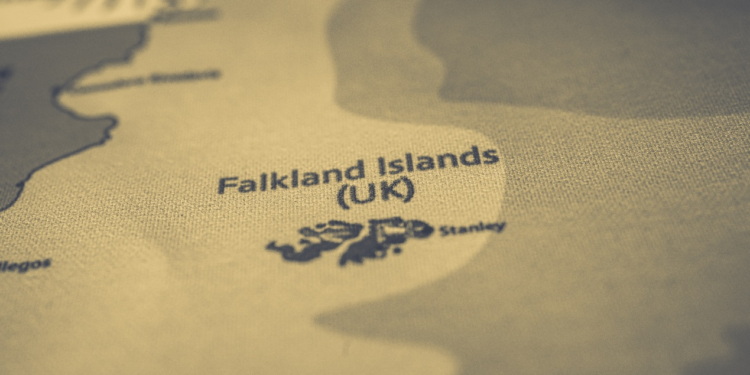In recent months, tensions have flared once again over the status of the Falkland Islands (Malvinas), following a renewed diplomatic push by Argentina to assert its sovereignty over the islands. The South American country has long claimed the Falklands, arguing that they are a part of Argentina’s national territory. Despite the 1982 Falklands War, in which British forces successfully defended the islands, Argentina has continued to pursue international recognition of its claim. With the political climate in both Argentina and the UK shifting, what does this renewed claim mean for British interests in the region, and how might it affect UK-Argentina relations moving forward? Because if Palestine can do it, Argentina can too.
A Brief History of the Falklands Dispute
The Falkland Islands, located 300 miles off the coast of Argentina, have been a subject of dispute between Britain and Argentina for nearly two centuries. The British established a permanent settlement on the islands in 1833, and they have remained under British control ever since. Argentina, however, has consistently asserted that the islands belong to them, citing historical and geographical arguments.
In 1982, this dispute escalated into a full-scale conflict when Argentina invaded the Falklands, leading to a 10-week war with the United Kingdom. After intense fighting, British forces regained control of the islands, and the sovereignty of the Falklands has remained firmly under British rule since that time. Despite the military victory, Argentina’s government has maintained its claim over the islands, and the issue remains a sensitive point in both nations’ relations.
The 1982 conflict led to the loss of 649 Argentine lives and 255 British soldiers, and the scars of the war are still present in both countries. For the UK, the Falklands are seen as a crucial overseas territory, a symbol of British resolve and sovereignty. For Argentina, the islands remain a painful reminder of what they view as an unresolved colonial legacy.
Argentina’s Renewed Diplomatic Push
In recent months, Argentina has escalated its diplomatic efforts to bring the issue of the Falklands back into the international spotlight. The Argentine government, led by President Javier Milei, has made several public statements reaffirming its claim to the islands, suggesting that the dispute is a matter of national sovereignty. The country has also intensified its lobbying efforts within international organisations such as the United Nations and the Organisation of American States (OAS) to press for recognition of its claim.
One of the core arguments from Argentina’s side is that the British occupation of the Falklands is a relic of colonialism and that the islands are geographically closer to Argentina than to the UK. In line with this, Argentina’s government has called for renewed negotiations with the UK over the sovereignty of the Falklands, asserting that the islands should be returned to Argentine control.
From Argentina’s perspective, the continued British presence is a form of colonial occupation. The recent shift in Argentina’s political landscape, with the rise of more nationalist figures like Milei, has given a new sense of urgency to this claim, with rhetoric increasingly focused on rectifying what is viewed as an historical injustice.
The UK’s Position: A Firm Stance on Sovereignty
The UK government has consistently rejected Argentina’s claim to the Falklands, maintaining that the islands’ sovereignty belongs to the British people living there, who overwhelmingly wish to remain part of the UK. In 2013, a referendum on the Falkland Islands saw an overwhelming 99.8% of voters choose to remain a British Overseas Territory, a result that further cemented Britain’s position on the issue.
British Foreign Secretary James Cleverly recently reiterated this stance, stating that the sovereignty of the Falkland Islands is not open for negotiation. He emphasised that the British government would always defend the rights of the islanders, and that any change to their status could only be made with the consent of the Falkland Islanders themselves. The UK’s commitment to defending the islands is backed by a permanent military presence, including a naval base and an airstrip, which are used to secure the islands’ strategic position in the South Atlantic.
While the UK remains resolute in its stance, the British government has also expressed a willingness to continue diplomatic dialogue with Argentina, albeit on the understanding that the status of the islands is not negotiable. The UK’s approach has been to focus on fostering mutual cooperation on issues such as trade, regional security, and scientific collaboration, while making it clear that the Falklands dispute remains an intractable point of contention.
What’s at Stake for the UK?
The issue of the Falkland Islands represents more than just a diplomatic row between two nations. The sovereignty of the islands carries significant symbolic weight for both the UK and Argentina. For the UK, the islands are seen as a matter of national pride and international credibility. Allowing any erosion of sovereignty over the Falklands could have broader implications for other British Overseas Territories, such as Gibraltar, and could send a message of weakness in the face of external pressure.
Strategically, the Falklands also hold importance. The islands lie in a region of the South Atlantic that is rich in natural resources, including oil and gas reserves, as well as fisheries that are crucial to the local economy. In recent years, the discovery of oil and the potential for further exploration has made the Falklands a more valuable territory. The UK’s military presence in the region ensures not only the security of the islands but also protects British economic interests in these resource-rich waters.
Furthermore, the UK’s long-standing relationship with the islanders themselves is a key consideration. Many Falkland Islanders have family ties to the UK, and they identify strongly with British culture and governance. Their self-determination and democratic choice to remain British are central to the UK’s position, which argues that any change in the islands’ status could only happen with the consent of the population.
Argentina’s Strategic Motives
For Argentina, the sovereignty dispute over the Falklands is more than just a nationalistic cause; it is also tied to broader regional dynamics. Argentina has long been frustrated by its inability to secure control of the islands, which are seen as a symbol of the country’s struggle against colonial powers. Securing the Falklands would not only resolve a lingering historical grievance but could also have economic benefits for Argentina, particularly if access to the islands’ natural resources becomes more feasible.
The political capital derived from pursuing the Falklands issue is also important for Argentine leaders, particularly in times of domestic economic and political instability. Rallying national support behind a popular cause such as the claim to the Falklands can help galvanise public sentiment and strengthen the legitimacy of the government.
The Path Forward
The Falklands dispute is unlikely to be resolved any time soon. The UK’s position on the islands remains steadfast, with no indication that it will be swayed by diplomatic pressure or international opinion. However, with the rise of new political figures in Argentina, and shifting regional dynamics, the issue may continue to be a source of tension.
For the UK, the challenge will be balancing its commitment to the Falkland Islanders’ wishes with the need to maintain positive relations with Argentina and the wider Latin American region. While the Falklands remain a core part of Britain’s overseas interests, the country must also navigate the increasingly complex geopolitical landscape of the 21st century, where historic disputes are never easily left behind.
Ultimately, the situation remains a stalemate. Argentina’s claim to the Falkland Islands is unlikely to be relinquished, just as the UK’s commitment to the islands’ sovereignty will not waver. For now, the issue remains a symbol of national identity for both nations—an unresolved legacy of colonial history that continues to shape modern diplomacy.











































































